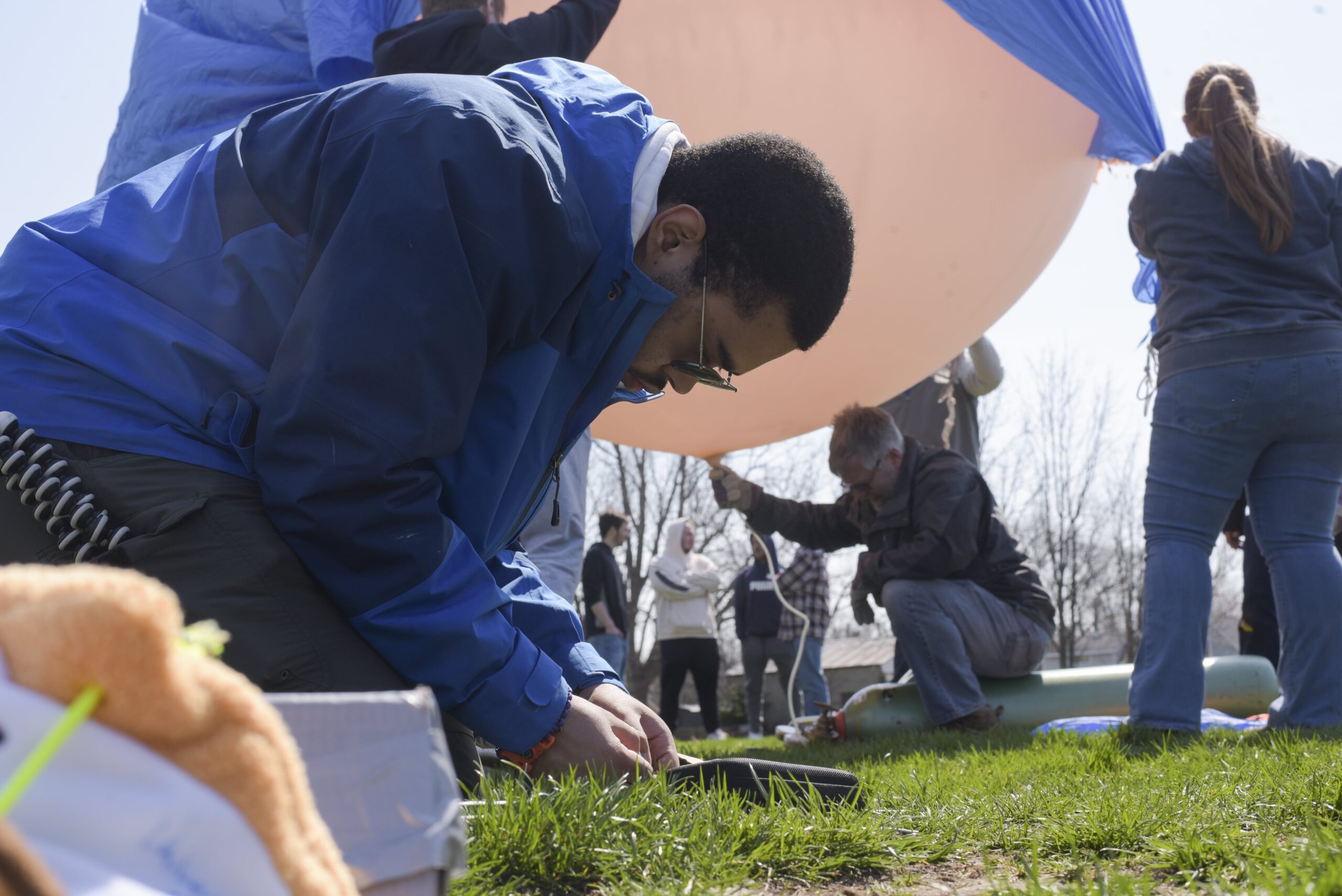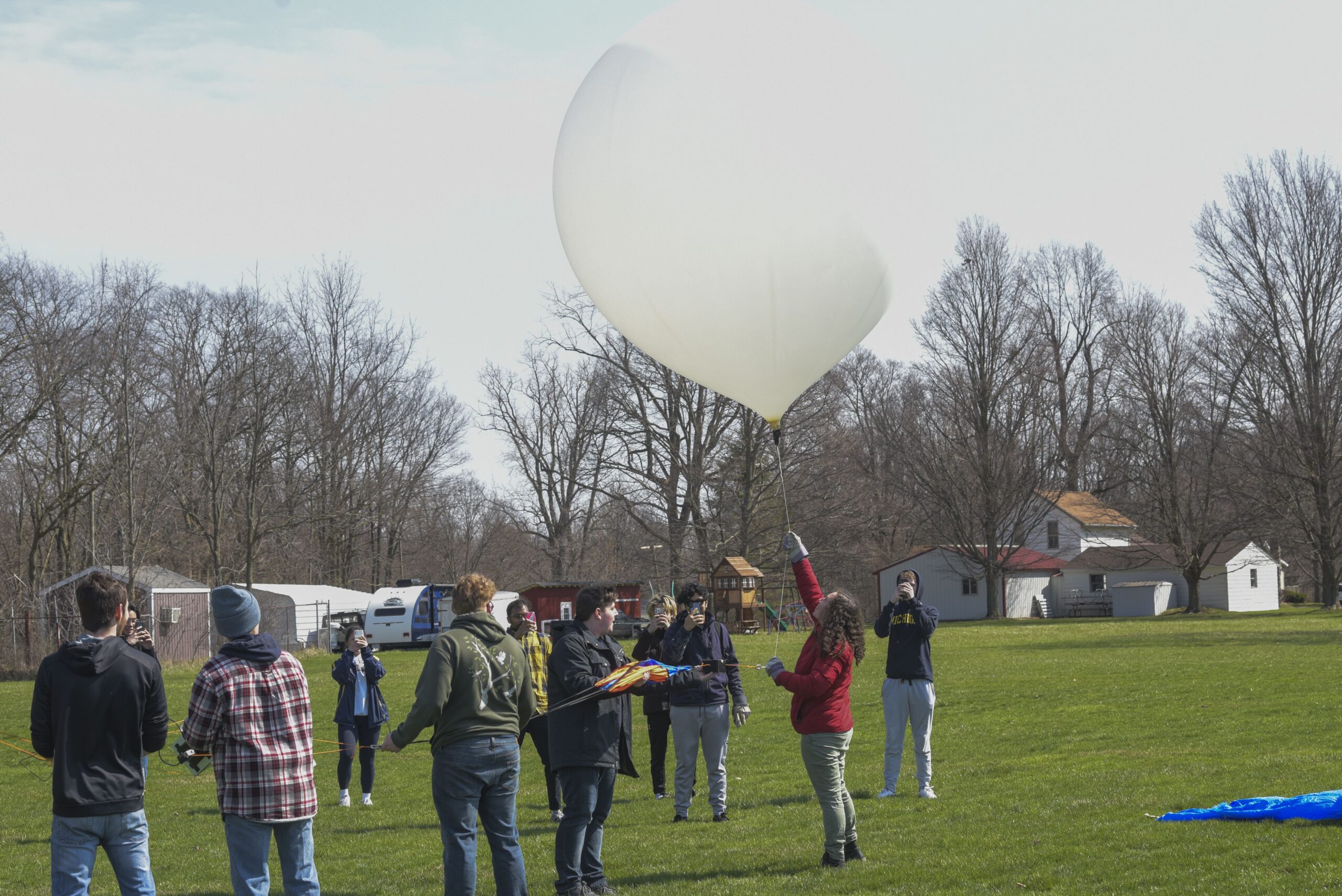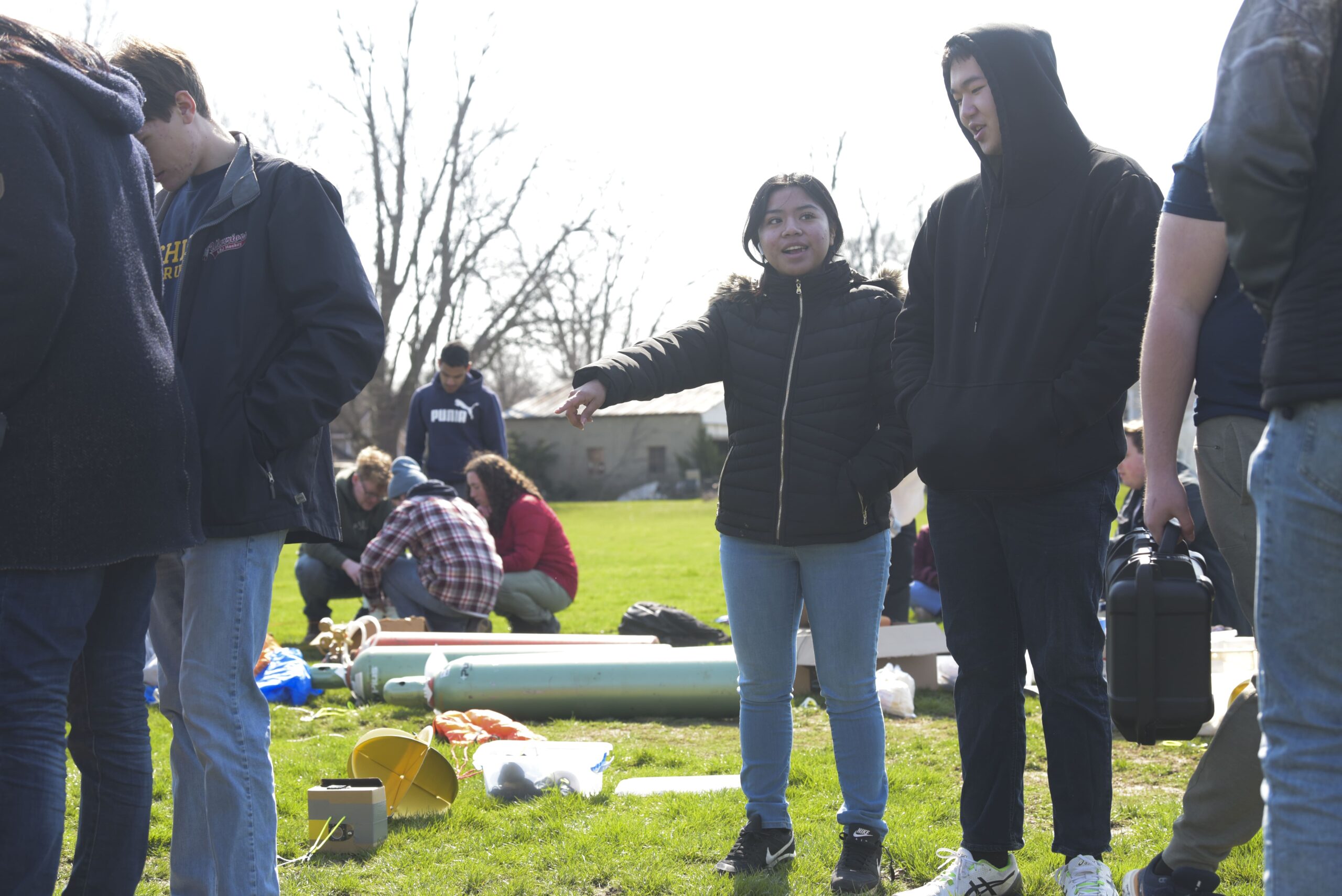< Back to Search
ENGR 100.950: Electronics for Atmospheric & Space Measurements (CLaSP)
Faculty:
David Greenspan (TechComm),
Alan Hogg (TechComm),
Aaron Ridley (CLaSP)
Winter Term

“If you’re interested in the engineering design process, this is a great section because we start from scratch. We design a system, we build a system, we test a system, we deploy a system.”
– Aaron Ridley, Faculty

Course Description:
Building instrumentation for space and the atmosphere is a confluence of several engineering fields including electrical and mechanical engineering and computer science. Autonomous instrumentation has a structure to contain and shield it from its possibly harsh environment, an electronics system to take and record the data, a power system to run the instruments, and software to record and control the system. In this section, you will learn the skills to design, build and deploy a sensor package to measure the characteristics of the atmosphere on a weather balloon as it ascends to 100,000 ft altitude. You will learn:
-
-
Practical skills from several engineering fields including using and programming a microcontroller, soldering, and designing a printed circuit board (PCB)
-
Solving complex problems using the engineering method
-
Analysis of multiple data sets including GPS, temperature, pressure, humidity, and acceleration
-
Understanding the cycle of a project through the conception, requirements flowdown, design, build, test, deployment, analysis, documentation, and reporting processes
-
Term Project:
Design, build, test, and deploy a sensor package on a high-altitude balloon. Measure the characteristics of the atmosphere as the balloon ascends and the payload descends after the balloon pops.
Labs:
Use an Arduino microcontroller; take data with analog sensors; store data on an SD card using the microcontroller; use Altium to design electrical systems




